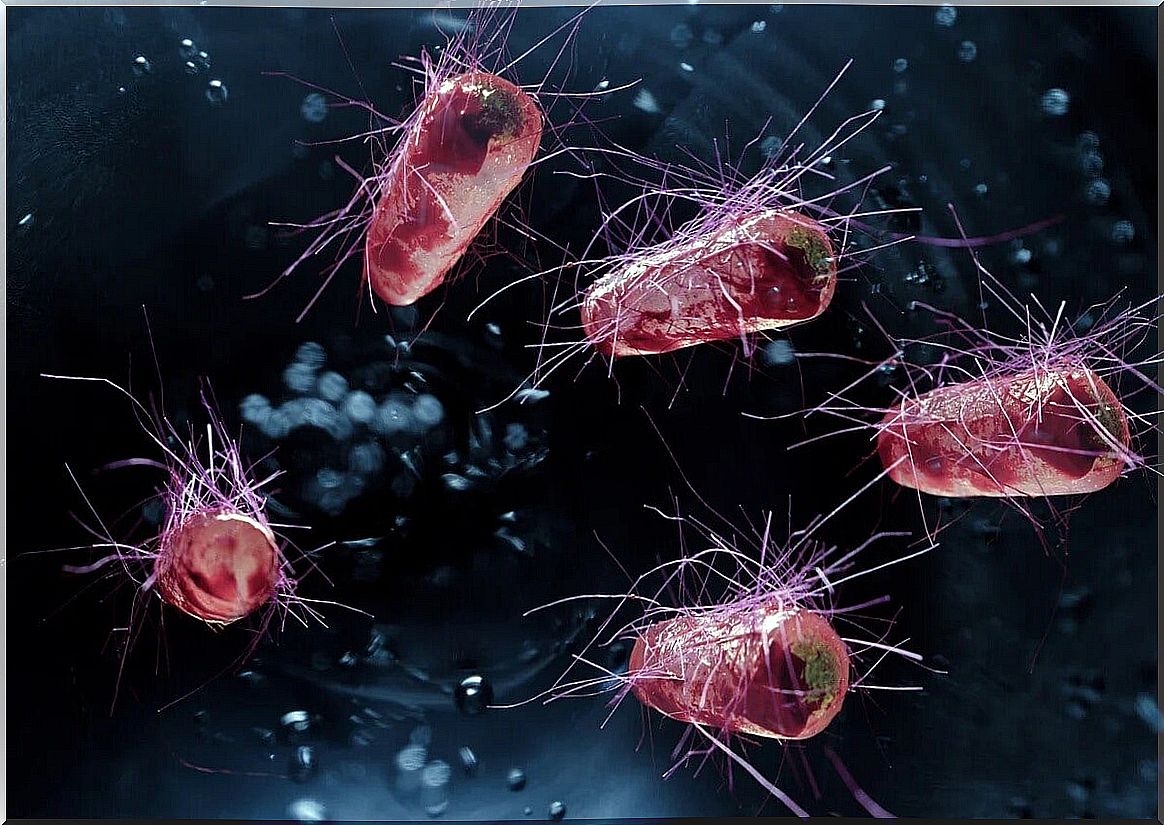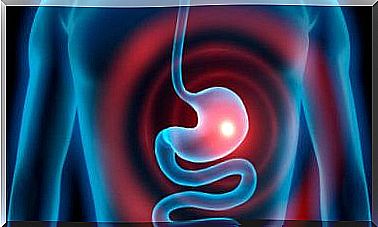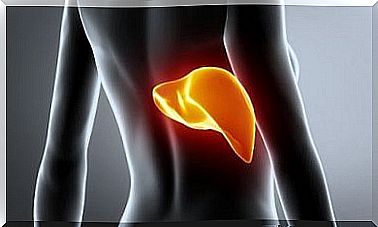Infectious Diarrhea: Everything You Need To Know About It
Infectious diarrhea is often accompanied by other symptoms, such as fever, abdominal cramps, nausea, dizziness, and malaise. Its causes are varied and it can arise from various microorganisms.

Diarrhea is defined as mushy or watery stool that occurs three or more times a day. In addition to being a sign of a disease process, infectious diarrhea is the second leading cause of death in low-income countries, according to the World Health Organization (WHO).
In western countries with well-developed health systems, diarrhea is usually not a problem, but in other regions it becomes a cause of death, especially in infants. Whether for awareness or prevention, knowing about this condition is essential. Today we’re telling you everything you should know about infectious diarrhea.
What is Infectious Diarrhea?
As explained earlier, a mushy stool that occurs more than three times a day is considered diarrhea. Studies have shown that in children under two years of age, this is three or more stools in 12 hours or, if not, if at least one stool contains blood, mucus, or pus.
Infectious diarrhea is a diarrheal disease that is caused by pathogens. This means that it is not triggered by other events, such as food poisoning or gastrointestinal diseases such as irritable bowel syndrome, but can be caused by viruses, bacteria or protozoa, among other things.
In addition to the medical information, it is also important to analyze the infectious diarrhea situation in a global context. To do this, the World Health Organization provides us with a number of insightful data, including the following:
- Diarrhea is the second leading cause of death in children under five worldwide.
- This means that around 525,000 children die every year.
- A significant proportion of these diseases could, for example, be prevented through appropriate health structures and appropriate nutritional controls.
- This condition can lead to severe malnutrition, the loss of healthy years of life and, in very severe cases, even death.

To learn more about it: Chronic and Acute Diarrhea: Causes and Treatment
Infectious diarrhea: causes
Scientific studies show that infectious diarrhea is caused by viruses, bacteria and protozoa, as well as certain more complex parasites. Here is a brief explanation of each of these pathogens.
bacteria
As surprising as it may seem, bacteria only cause around 10-20% of infectious diarrhea. The most common enteropathogenic diseases include the following: Shigella dysenteriae, Salmonella, Vibrio cholerae, enterohaemorrhagic Escherichia (E.) coli , Aeromonas and Yersinia (Y.) enterocolitica.
Particularly noteworthy is Campylobacter jejuni , which is one of the four most common pathogens causing diarrhea worldwide.
Viruses
Many viruses cause diarrhea, including noroviruses and rotaviruses. They are the most common causes of acute diarrhea. Loose stool caused by a virus is also known as viral gastroenteritis or gastrointestinal flu .
Protozoa and other parasites
Some protozoa present in the water, such as Entamoeba histolytica or Giardia lamblia , can cause infectious diarrhea. More complex parasites, such as B. intestinal worms, also known scientifically as Ascaris lumbricoides , also lead to this clinical picture.
Main routes of transmission
Depending on the pathogen that we look at, we see that the transmission routes can be diverse and different. For example, a virus is transmitted through microaerosols given off by the infected person – such as coughing or sneezing – while a bacterium generally has to be ingested with food.
Infectious Diarrhea: How To Prevent It?
As a basic rule, as stated by the Centers for Disease Control and Prevention (CDC), the best prevention for avoiding infectious diarrhea is to disinfect kitchen surfaces, not to drink untreated water, and to consume only cooked or pasteurized foods.
This is because the microorganisms mentioned above are actually transmitted through direct contact with the mouth or through consumption of water or certain foods.

What other symptoms are there?
In addition to watery or loose stools, infectious diarrhea can be accompanied by other symptoms, depending on the pathogen. According to the National Institute of Diabetes and Digestive and Kidney Disease (NIH) , some accompanying symptoms can include the following:
- Blood in the stool
- Fever and chills
- Dizziness and lightheadedness
- Vomit
- Abdominal pain and swelling
Prevention by avoiding certain foods
As we have seen in this context, infectious diarrhea can be caused by several pathogens: bacteria, viruses, protozoa and other parasites. In most western countries this clinical picture is not a problem, but in regions with poor hygiene conditions it is the second leading cause of death.
The best prevention for avoiding diarrhea (with the exception of the viral variant) is therefore to completely avoid the consumption of raw, undercooked or treated foods in an inadequately disinfected environment.









